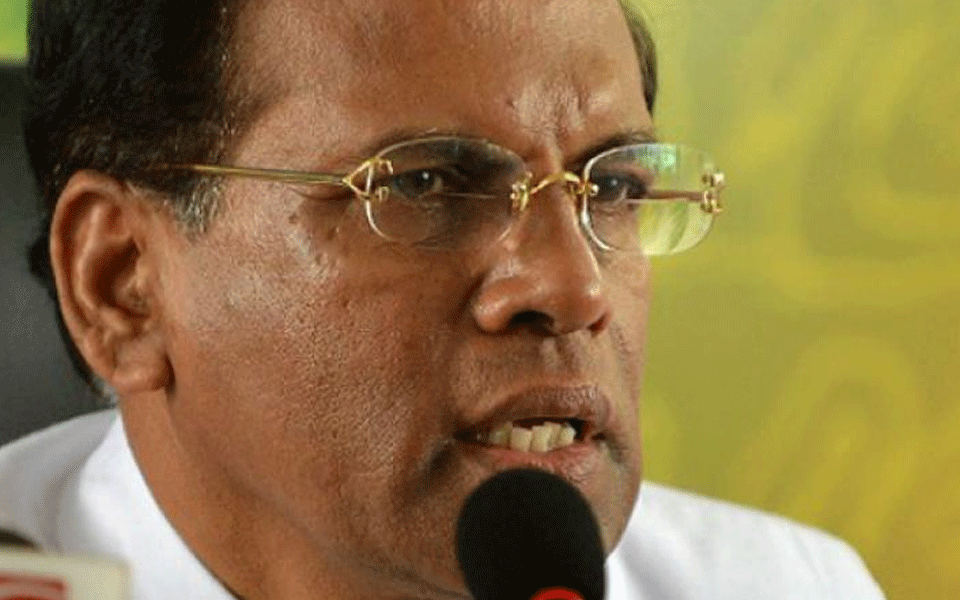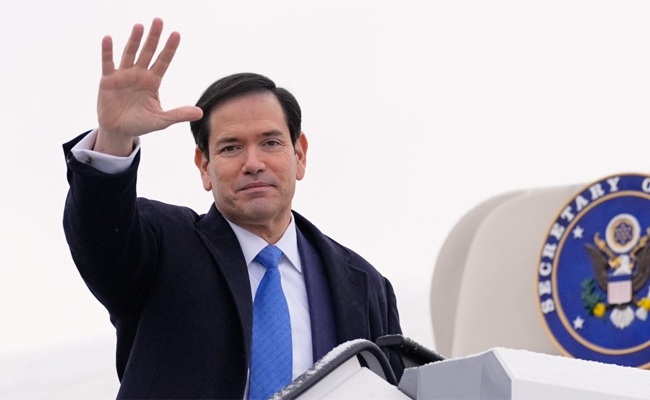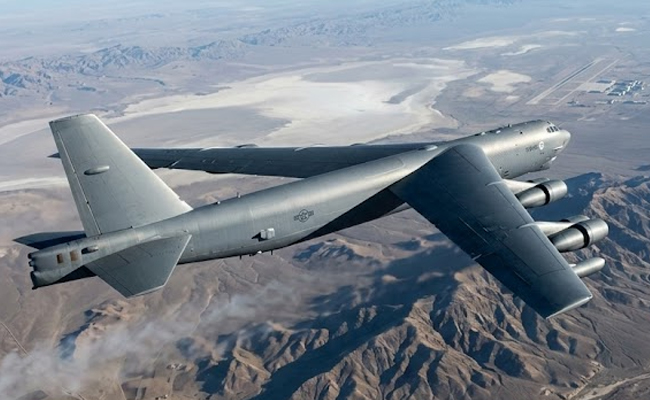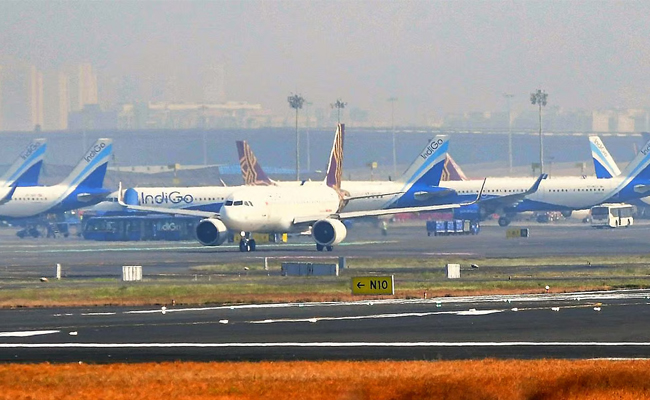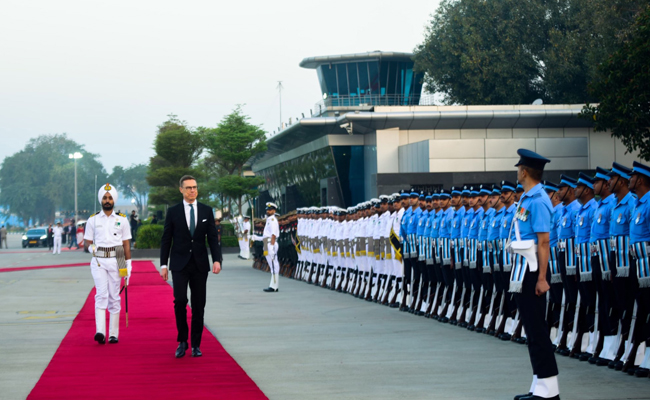Colombo: A state of emergency was extended by Sri Lanka's President Saturday, going back on pledges to relax the tough laws introduced after the Easter Sunday attacks that killed 258 people.
Maithripala Sirisena said in a decree he believed there was a "public emergency" in the country, and was invoking provisions of the public security act extending the state of emergency.
The tough laws, granting sweeping powers to police and security forces to arrest and detain suspects, were due to expire on Saturday.
Just over 100 people, including 10 women, are in custody in connection with April's Easter Sunday suicide attacks against three churches and three luxury hotels in Colombo.
In late May, Sirisena told diplomats -- from Australia, Canada, Japan, the US and European states -- the security situation was "99 per cent back to normal" and he would allow the emergency laws to lapse by June 22.
He assured diplomats security forces had either detained or killed all those directly involved in the attacks, blamed on a local jihadi group and claimed by the Islamic State group.
There was no immediate word from the government why Sirisena changed his mind, but security remains tight in the capital. The emergency can be declared for a month at a time, and parliament must ratify it within 10 days.
The continuation of the emergency came as police announced criminal investigations against several top officers, including the Inspector-General, for negligence and lapses ahead of the bombings.
Sirisena himself has been criticised for failing to act on precise Indian intelligence that jihadists were about to hit Christian churches and other targets in Sri Lanka.
A parliamentary public inquiry has been told Sirisena -- who is also the minister of defence and law and order -- failed to follow proper national security protocols.
Let the Truth be known. If you read VB and like VB, please be a VB Supporter and Help us deliver the Truth to one and all.
Washington: Tensions rose at the US Capitol on Tuesday as lawmakers sought clearer answers from the Trump administration on the objectives, duration and costs of the ongoing military campaign against Iran, even as preparations advanced for votes aimed at curbing the president’s war powers.
Senior officials, including Secretary of State Marco Rubio, briefed members of the House and Senate for a second consecutive day behind closed doors, as reported by the Associated Press. The sessions came ahead of votes on war powers resolutions that would limit President Donald Trump’s authority to continue joint US-Israel operations without congressional approval.
Rubio told reporters that the president acted to prevent Iran from striking first. He rejected suggestions that Washington moved only because Israel was poised to launch its own offensive, saying instead that Trump believed the weekend presented a rare opportunity to act with maximum impact. “There is no way in the world that this terroristic regime was going to get nuclear weapons, not under Donald Trump’s watch,” Rubio said.
ALSO READ: BLR airport sees 34 int'l flight cancellations amid Middle East crisis
The conflict has widened following US and Israeli airstrikes on February 28 that killed Iran’s Supreme Leader, Ayatollah Ali Khamenei. Iran has since launched missile attacks targeting US military bases in the region. At least six American service personnel have died so far.
The administration has indicated that supplemental funding may be required to sustain operations. It added that the concerns among lawmakers about the financial burden and potential for a prolonged engagement has disrupted legislative business, sharpening political divisions at the start of a competitive midterm election cycle.
Associated Press cited Senate Democratic Leader Chuck Schumer’s concerns about what he described as possible “mission creep.” Senator Angus King questioned whether the United States had been drawn into war at Israel’s urging, while Senator Elizabeth Warren asked how the campaign aligned with Trump’s “America First” pledge to avoid extended foreign conflicts.
Defence official Elbridge Colby told senators the president had directed the military to degrade Iran’s missile capabilities and prevent it from acquiring nuclear weapons, stressing that the objective was not nation-building. Trump, speaking separately from the Oval Office, dismissed claims that Israel had forced his decision and suggested the conflict could continue if necessary. He has not ruled out deploying US ground troops.
Senator Richard Blumenthal was quoted by Associated Press as saying that he feared the possibility of American boots on the ground while Republican Senator Markwayne Mullin defended the operation, saying the president had acted decisively.
Uncertainty over Iran’s future leadership has added to concerns, with questions mounting about who might succeed Khamenei as Trump rejected the idea of backing Reza Pahlavi, the exiled crown prince of Iran’s former monarchy. Senate Majority Leader John Thune said the future of Iran should be determined by its people and House Speaker Mike Johnson said the United States would not engage in nation-building.
Lawmakers from both parties also reported a surge in calls from constituents seeking assistance for Americans attempting to leave the region as hostilities intensify.
The US Constitution grants Congress the right to declare war, however presidents have routinely begun military activities without formal declarations. Both houses are anticipated to vote on proposals that would require explicit congressional approval to continue operations. Some members have also argued that if constraints are not imposed, Congress should consider issuing an Authorization for the Use of Military Force to put lawmakers on the record.
Associated Press quoted House Democratic Leader Hakeem Jeffries questioning the rationale for the campaign and saying there would be strong support among Democrats for the resolution. Johnson, however, warned that restricting the president during active combat could pose risks.

